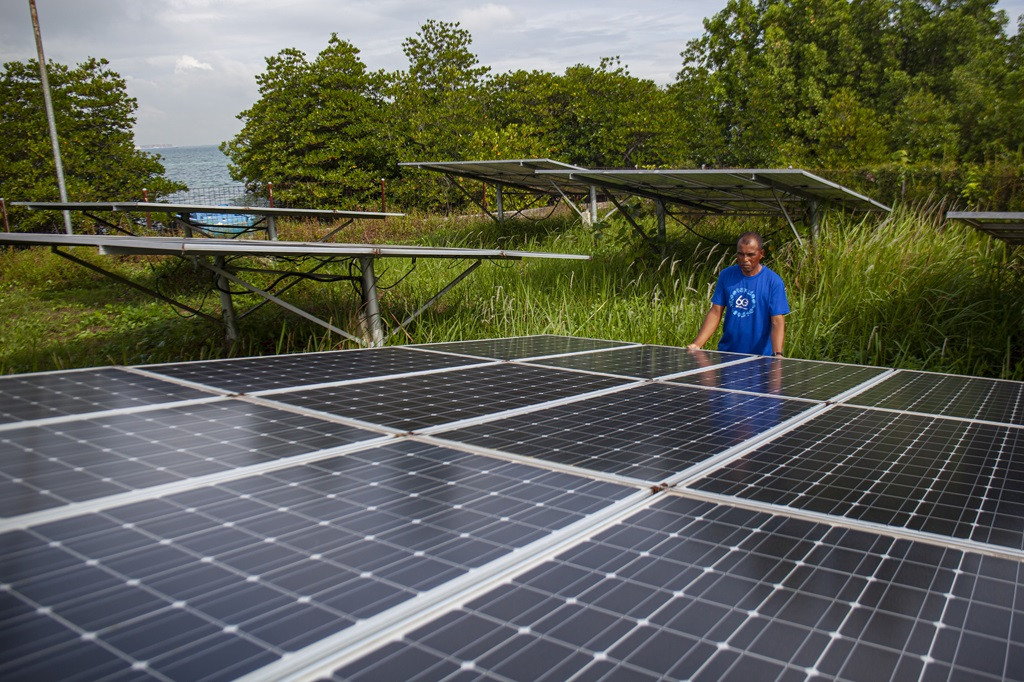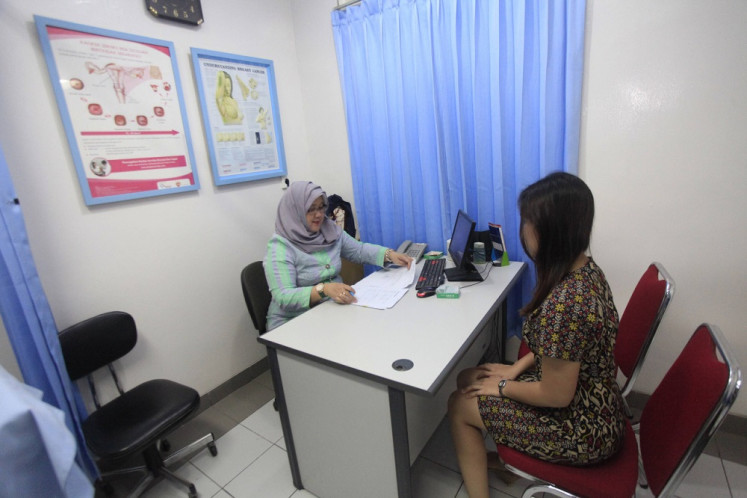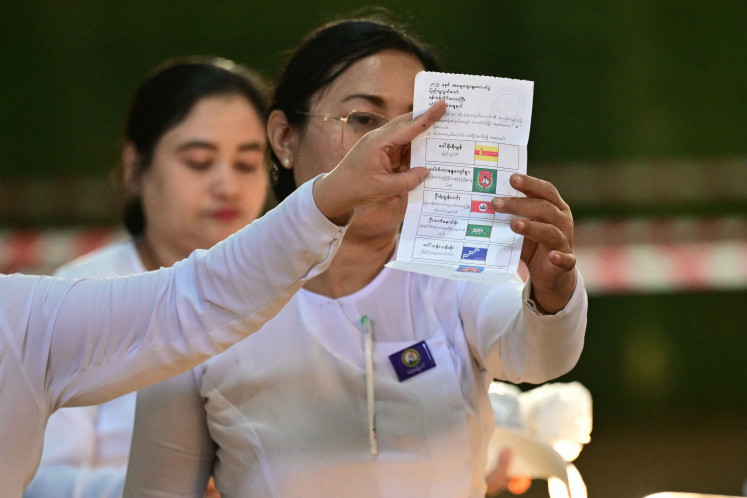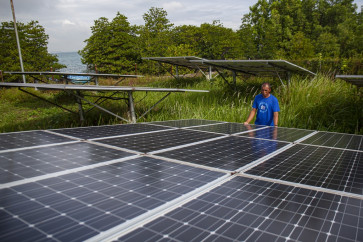Popular Reads
Top Results
Can't find what you're looking for?
View all search resultsPopular Reads
Top Results
Can't find what you're looking for?
View all search resultsLocal content requirement a bottleneck for Indonesia’s energy transition push
There seems to be a lack of alignment within the government regarding the simultaneous pursuit of energy transition acceleration and the promotion of domestic industrial growth.
Change text size
Gift Premium Articles
to Anyone
I
ndonesia’s energy transition has faced many hurdles which have caused the annual energy mix target always to fall short of its initial goal. In 2023, the Energy and Mineral Resources Ministry reported that Indonesia’s renewable energy realization stood at 13.1 percent of the total energy mix, lagging from a set target of 17.9 percent. Coal still dominates the game at 40.46 percent, followed by the oil and gas, with 30.18 percent and 16.28 percent, respectively.
As the country continuously pushes the development of renewable energy plants, the formulation of new regulations in this sector has been slow. The country’s “flagship” renewable energy bill (RUU EBT) that aims to accelerate the transition has been lying down in the House of Representatives for some years and has yet to be passed. As the House readies to pass the bill this year, one of the unsolved puzzles is related to the local content requirement (LCR).
Indonesia’s LCR is a set of rules that aim to promote the country’s domestic industrial development by applying a minimum amount of locally sourced goods and services in certain sectors. The policy aims to reduce the country’s dependence on imported products and has prevailed in a broad range of industries, from manufacturing and transportation to energy.
At the inter-institutional level, there seems to be a lack of alignment within the government regarding the simultaneous pursuit of the energy transition acceleration goal and promoting domestic industrial growth. Although it is crucial for these objectives to be pursued in tandem, everyone needs to be on the same page to find the equilibrium.
In the latest parliamentary meeting regarding RUU EBT in November 2023, Energy and Mineral Resources Minister Arifin Tasrif proposed adding one substantial point regarding LCR to the draft of the renewable energy bill. He noted that the availability and capability of domestic products and potentials, competitive renewable energy prices and flexibility based on sources of funders all needed to be included.
In addition, the head of the Industrial Services Policy and Standardization Agency (BSKJI) of the Industry Ministry, Andi Rizaldi, asked for simplification regarding the point on LCR proposed by the energy minister. He suggested that local content-related rules should be implemented following the provisions of the regulations under the Industry Ministry.
Meanwhile, a member of the House’s Commission VII, Mulyanto, who oversees energy, mineral resources, research, technology and environmental affairs, rejected the idea of LCR flexibility in the renewable energy bill. He sees the concept as a “setback” and as counterproductive to advancing national industry and reducing Indonesia's import dependence.



















